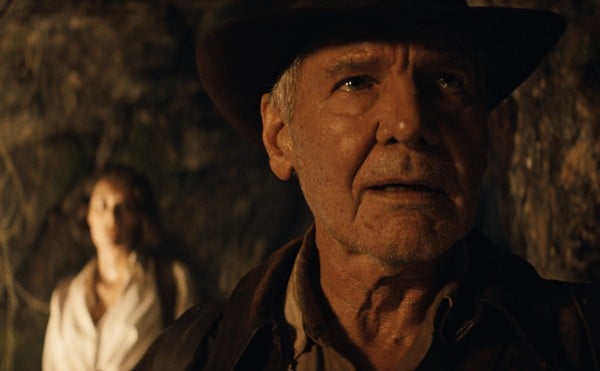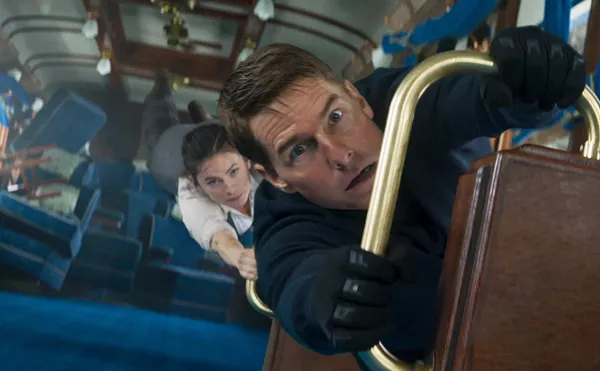Unfortunately, this relentlessly provocative film demands a broader view -- especially now. With the Middle East in bloody chaos, al-Qaida presumably dreaming up new schemes of destruction and the United States flirting with global war, it cannot hurt to take a good, hard look -- as Hirschbiegel does -- at the roots of aggression, at territorial imperative, at terror. En route, we also get a chance to examine the nature of the self and the responsibilities of science. Das Experiment has all this and more, excitingly packaged as a prison movie featuring superb performances and high emotional tension.
Our hero -- thank heaven we've got one -- is a former journalist named Tarek Fahd (Run Lola Run star Moritz Bleibtreu) who's now driving a cab in Cologne and who joins the fourteen-day experiment for a couple of reasons: It pays each participant 4,000 deutschmarks, and his ex-editor promises him 10,000 more for an undercover story, along with photos shot with a tiny camera concealed in a pair of glasses. We sense from the start that the wisecracking, obviously antiauthoritarian Tarek will become what the experiment's designers call a "dynamic factor" -- that is, as "Prisoner 77," he will happily make trouble. His antagonist, as it turns out, is a self-conscious, tightly wound airline employee named Berus (Justus Von Dohnànyi), a guy just born to wear a steel-gray uniform and swing a black nightstick. The new-minted guards are to keep order, but there must be absolutely no violence, the experiment's rules demand. The doctors will be watching by means of video cameras. But if history has taught us anything, it's that certain human beings -- even those sworn to uphold the law -- will break any rule and violate their own morality if given a little power. When the struggle between Tarek and Berus transforms both men and inflames their comrades, the psychologists' prison-cell laboratory, suitably lit in cold blues and greens, turns into a real-life battlefield.
Social scientists and psychiatrists complain about their portrayals in films such as One Flew Over the Cuckoo's Nest and I Never Promised You a Rose Garden, and they're bound to grouse about the exaggeration of scientific practice in the fictional experiment here. But there can be no argument with the film's depictions of psyches under great stress. Tarek and Berus are the centerpieces, but Hirschbiegel's vivid supporting characters include, among others, a jolly Elvis impersonator (Timo Dierkes) susceptible to a more sinister kind of role-playing, a lonely newsstand operator (Oliver Stokowski) unable to cope with pressure and a "guard" with a conscience (Antoine Monot Jr.) who becomes the film's supplementary hero. The experiment's chief assistant, Dr. Grimm (Andrea Sawatzki), also has second thoughts about its consequences, but for the real outside view -- for a breath of fresh air -- we have Dora (Maren Eggert), a lovely young woman who's grieving the death of her father and who, not coincidentally, has just spent a night of first love with Tarek. This gives us the opportunity to touch base every now and then -- through Tarek's dreams and flashbacks -- with "normal" life outside the ever more hazardous strictures of the lab/prison. These are welcome respites.
For the most part, though, Hirschbiegel pounds away at us, exploring with unfailing energy the concepts of authority and submission, the intoxication of power and the price of deprivation. Because it comes from a country whose corrupted military officers once protested, in the dock at Nuremburg, that they were "only following orders," this is an exceptionally bold work of art. But German guilt and German conscience are not the only pressing matters here: Das Experiment has the capacity to disturb and discomfit all of us as it tests our social responses, too, while cautioning us about the extremes of human behavior in an increasingly dangerous world.





